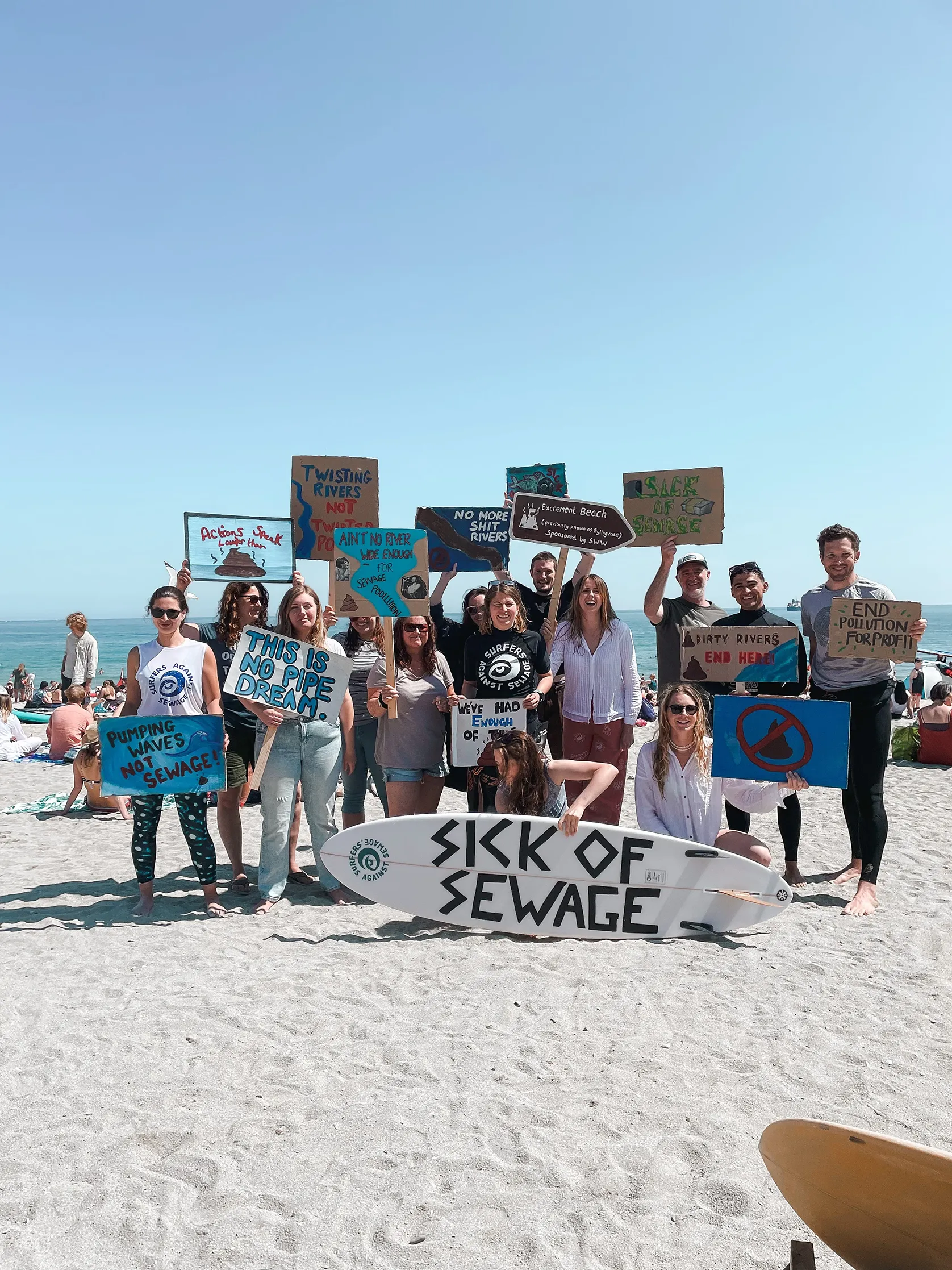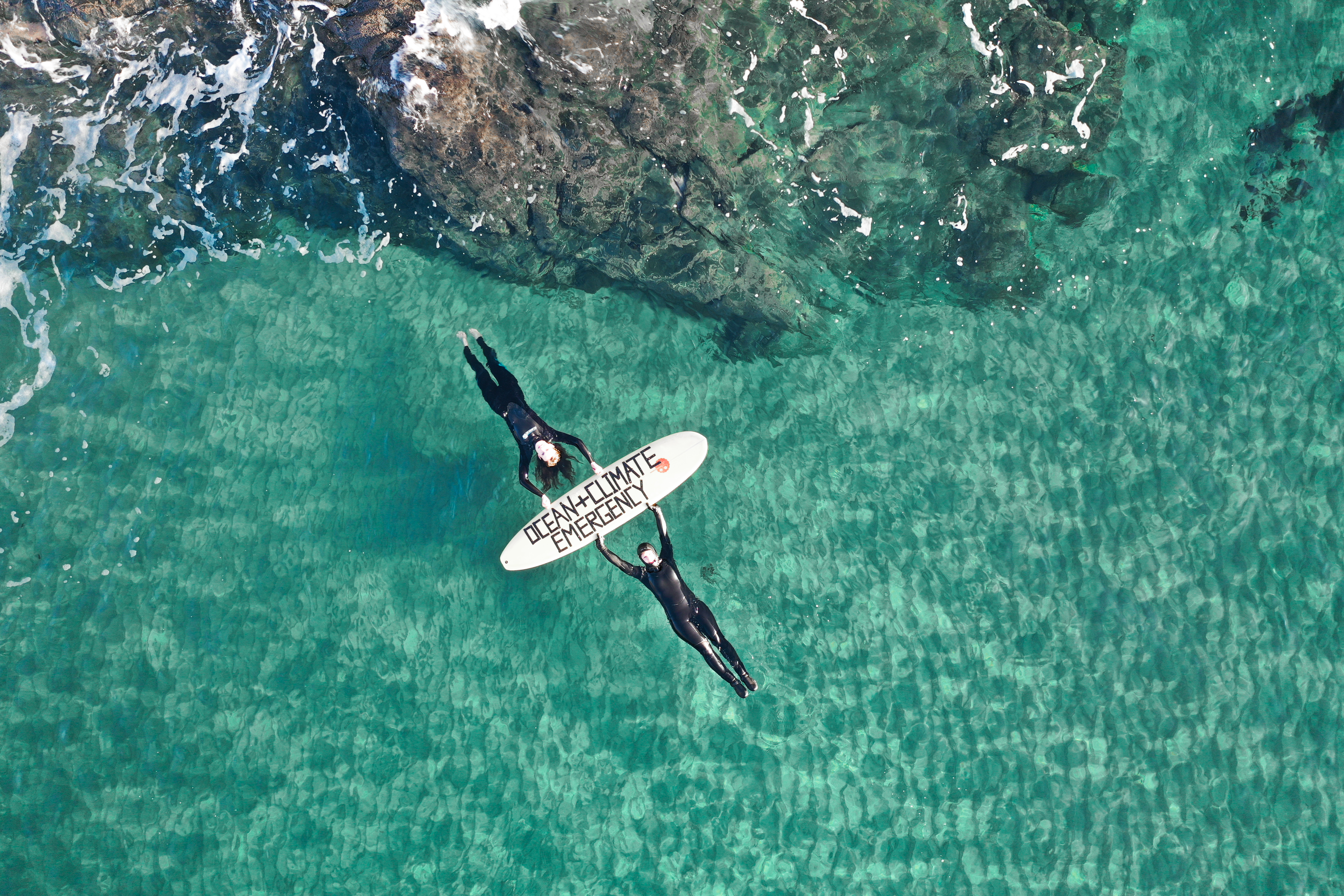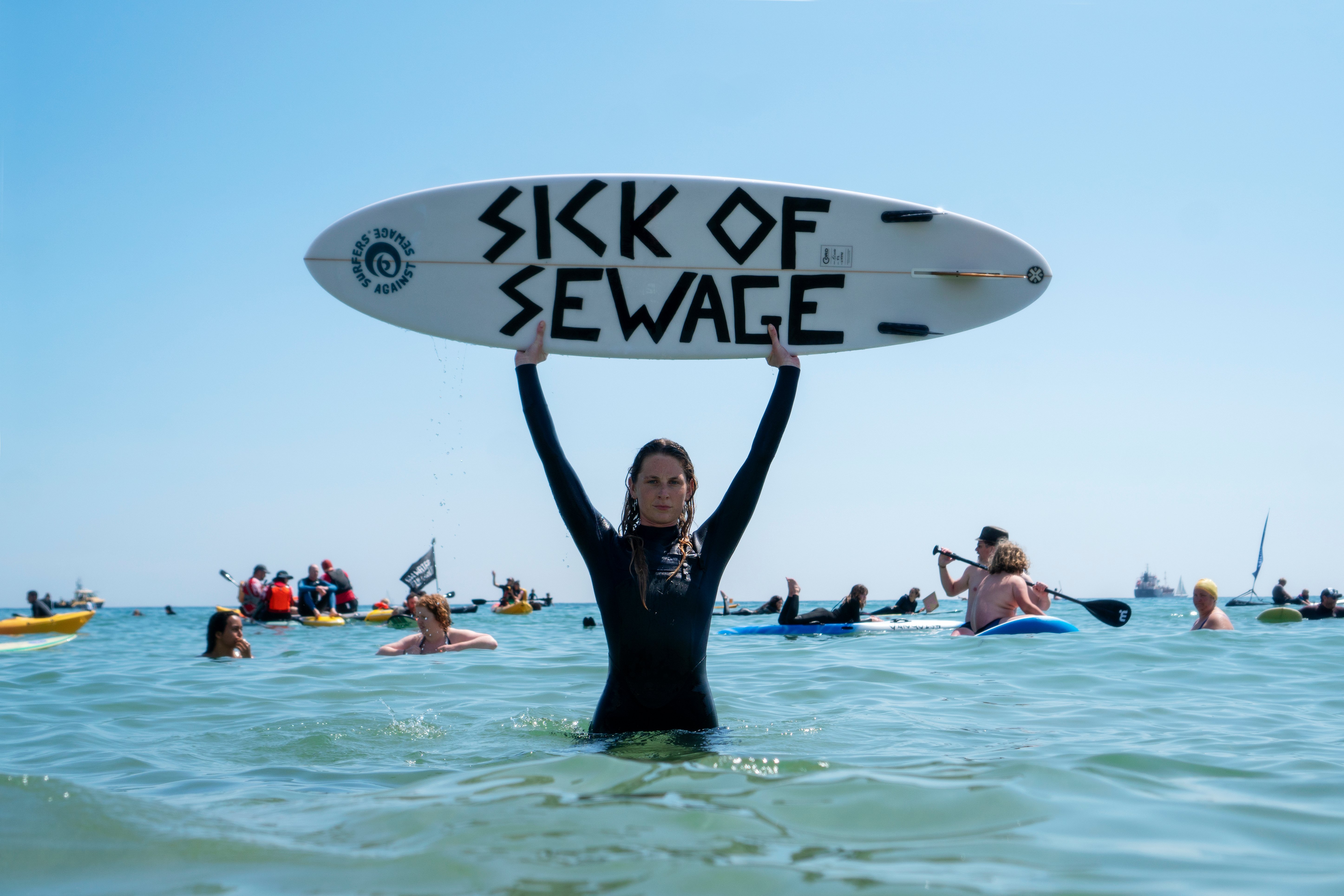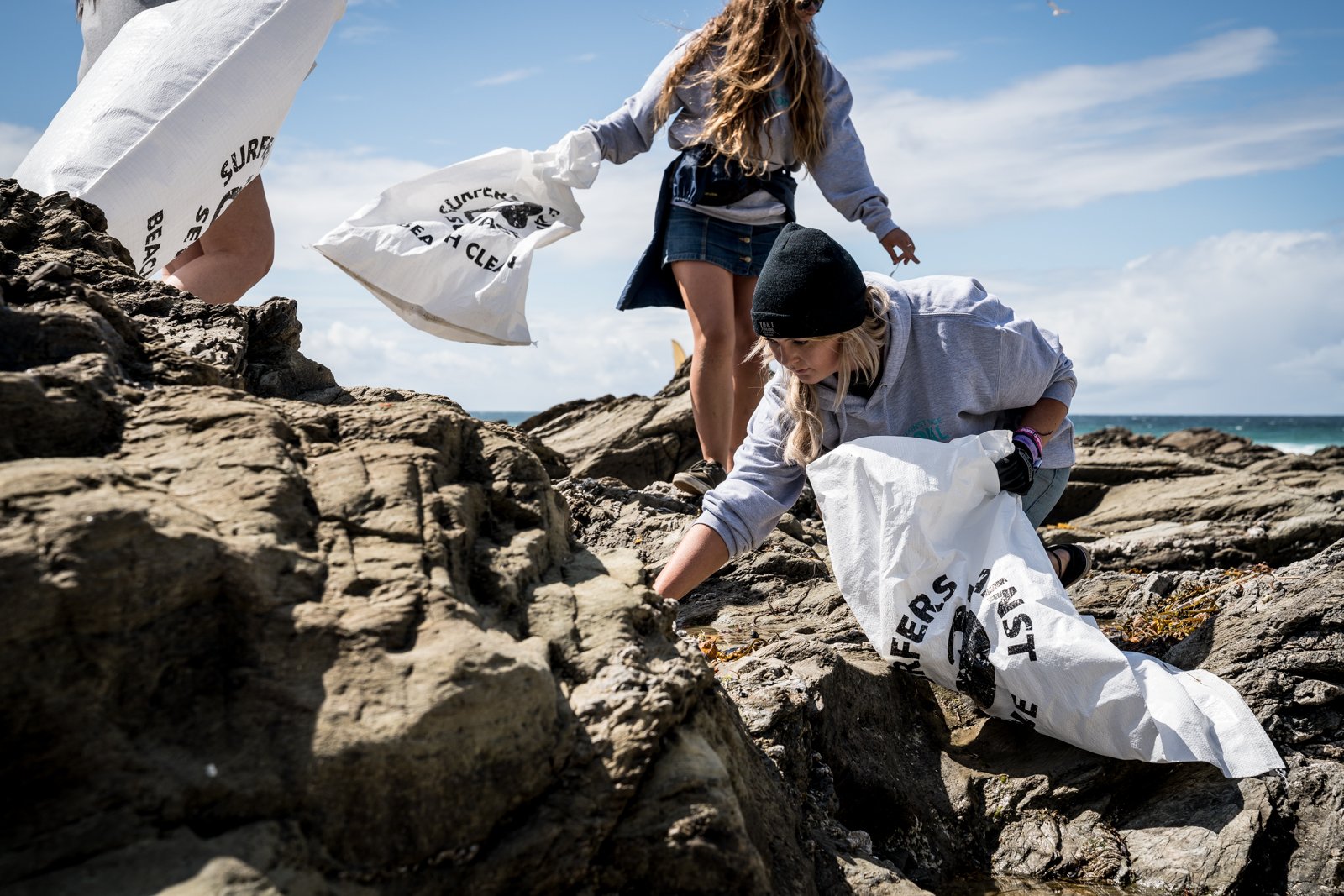Turning the tide
Britain’s coastlines are embattled by pollution, but there’s hope for a healthier future, thanks to the work of Surfers Against Sewage, one of Knight Frank’s charity partners

Giles Bristow is dressed as a pirate. It’s Lifeboat Week in Lyme Regis, where the new CEO of Surfers Against Sewage lives and regularly volunteers for the RNLI. “I’ve always been an environmentalist,” he says. “I’m happiest in, on or under the water; my family always spent time outdoors. And not just camping, swimming and being in nature, but sharing that experience with a community – that’s what it means to be human.”
As a wing foiler, sailor and surfer, he joined Surfers Against Sewage – or SAS – in August because “the opportunity to help clean and heal the ocean” was too important to miss.
Bristow’s commitment to our oceans has never been more salient: In March 2023, swimmers in the UK were told to avoid 84 beaches around the country because of sewage. Analysis by the environmental regulators showed sewage overflows were opened nearly 400,000 times in 2022 across the UK, releasing untreated sewage onto our beaches and into rivers. In 2021, a study by the University of Manchester found that the poor management of untreated wastewater and raw sewage by water companies was the main source of microplastic pollution in UK rivers.


Making waves in conservation
Arrayed against this poor state of affairs is Surfers Against Sewage, a grassroots environmental organisation that has been a pioneering force in conservation for over 30 years. Their campaigns in the Nineties – which involved mass paddle-outs in gas masks and large inflatable turds – caused quite the splash, and positioned water quality high on the public agenda. By 1998, the group had successfully triggered a £5.5bn investment in coastal clean-ups and ended the continuous discharge of untreated sewage around the UK coastline.
“Not only is raw sewage really unpleasant, but it can damage our physical health and reduce our enjoyment of green and blue spaces,” says Pete Lewis, Director of Fundraising. “It harms ecosystems, contaminates the food chain, and even puts a strain on local economies.” By engaging local communities, lobbying the government and campaigning for policy change, the charity aims to put an end to marine pollution.
Lewis has worked for SAS for over 14 years and has seen it grow from a team of six to over 45 in that time. “Growing up, it was this incredibly cool, slightly anarchic, radical group that was having a real impact. A proud moment for me was getting a Surfers Against Sewage animal watch at school,” he says. “Now, we’ve evolved. We’re more than just surfers, tackling more than just sewage.”

The plastic-free revolution
By uniting communities against a common enemy, SAS has made impressive progress against marine pollution. In 2018, Penzance became the first town to receive ‘plastic-free’ status from Surfers Against Sewage by making sustainable, long-term changes. Since then, over 900 communities have signed up to their Plastic Free Communities programme. In 2023, the Plastic Free Schools programme welcomed more than 275 schools focused on eliminating single-use plastic, while their Million Miles Clean programme carried out over 12,000 beach clean-ups last year alone.
“Our beach clean-ups are not just about removing plastic pollution, they’re heart-warming community events with multiple generations coming together, getting to know each other and forming friendships over a shared passion for conservation,” says Lewis. “What we work on is really serious,” continues Bristow, “but organisations like SAS give people a constructive outlet, and we want people to have fun while they’re making a difference.”

Empowering schools and communities
It’s hard to dispute this with a man wielding a tricorne hat and an eye patch, but the numbers speak for themselves: there are 47,449 volunteers and counting all over the UK, for whom joining forces with SAS has become a rewarding reflection of their values and a way to connect with like-minded people. “The simple act of doing something about our pollution crisis, however small, creates a chain reaction of positivity,” Bristow adds.
“For our size, we pack a real punch,” says Dani Jordan, Director of Campaigns and Communities. “Our background in grassroots activism is our superpower – we’ve gone from a small group of surfers fed up with surfing in sewage, to a really vocal, well-known, well- respected charity that is helping communities. As a medium-sized charity, we’re able to remain nimble – we can respond quickly in a way that can be more difficult in a large NGO.”

Turning cleanup into community bonding
With communities across the country on board, the next challenge for SAS is to engage more closely with the business community, and encourage more large-scale corporations to commit to change. “Ultimately, we can’t do it alone,” explains Lewis. “We’ll have to work with water companies, whose infrastructure needs a total overhaul; they can’t ignore their responsibility for much longer, especially with the public pressure being applied. And we’ll have to work with the big brands that produce lots of plastic pollution.
It’s about working together, and one of the reasons we love collaborating with companies like Knight Frank, for example, is that they’re really committed to this. Their teams do regular beach clean-ups, we worked with their facilities team on our Plastic Free Communities programme; they’ve removed lots of single-use items across their estate as a result of working with us. Progressive businesses that want to make a change are instrumental – if businesses make changes, that’s going to have a big impact.”

Hope for a thriving ocean
For everyone at SAS, the issue is personal. Their office in St Agnes, Cornwall, looks out over the Atlantic; many staffers, like Lewis, surf on their lunch breaks. Jordan grew up swimming in the Thames, and her 10-year-old daughter joined her for a paddle-out protest earlier this year.
“This feels like a really pivotal moment for water quality in the UK,” says Lewis. “More than ever, we understand the value of green and blue spaces. We’ve elicited apologies from water companies; now we need action. It’s our legacy to leave for future generations and to have beautiful rivers feeding into the beautiful coastline. That’s what we all want – a thriving ocean and thriving people. And I think we will get there.”
Visit sas.org.uk for more information on Surfers Against Sewage’s work. Anna Prendergast writes on travel, sustainability and social issues for publications including FT HTSI and Condé Nast Traveller.